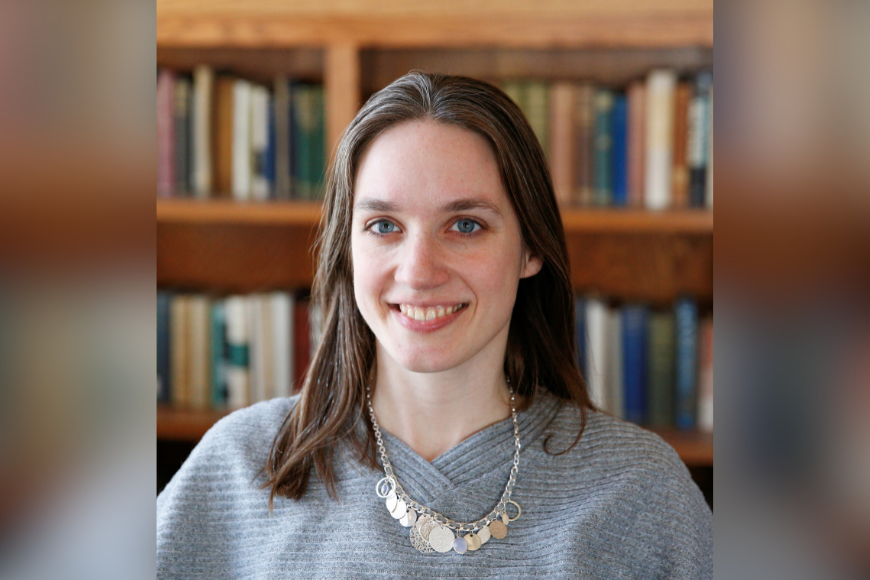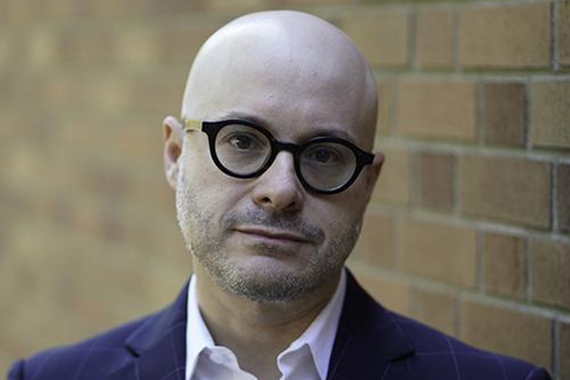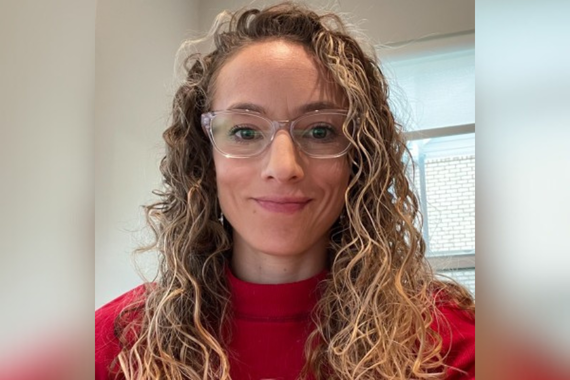Understanding Trust, Division, and Identity with a Political Psychology Lens
When she started the political science PhD program at the University of Minnesota in the fall of 2016, Kristin (Krissy) Lunz Trujillo was drawn to comparative political psychology. Her interest in this discipline originated from her experience teaching Art and Media Under European Regimes at Universidad del Desarrollo. This course examined propaganda under different regimes, leading to her desire to continue learning about why people believe such messages and how regimes are able to convince people to believe them.
Following Trump’s 2016 election, Lunz Trujillo’s interests began to shift. “I remember reading a book on this feeling of resentment in rural areas,” she reflected. “I came from a rural area, so I became really interested in that aspect of politics.” She continued to specialize in comparative politics, but her focus turned to urban-rural division and how place shapes political thought.
In 2019, along with another graduate student and a recent graduate from the program, she began exploring another, at the time fringe, interest area: vaccine attitudes and misinformation. Their research became incredibly relevant less than a year later when COVID-19 altered our lives and ways of thinking about these topics. Lunz Trujillo and her peers are continuing this work due to its persistent relevance.
During her final year of grad school, she taught as a visiting instructor at Carleton College, where she earned her Bachelor’s degree. She had also taught courses at UMN as part of her PhD program, but gaining “the liberal arts side of things” at Carleton was beneficial in honing her teaching skills.
Though she planned to continue teaching at Carleton while completing her dissertation during the summer of 2021, she applied for a postdoctoral research position at Harvard University. The position seemed like a good fit for her; it involved working with other political scientists interested in vaccinations, which was still rare at the time. Lunz Trujillo was selected for what became a joint-appointment with Harvard and Northeastern Universities, which she began in September 2021.
One of her primary projects in the postdoctoral research position has been the COVID States Project. For this, Lunz Trujillo and her peers conduct a survey every few months asking American adults questions regarding public health, politics, and current events.
The position has also been a great opportunity for her to network with other scholars who share similar interests. Gaining connections and having affiliations with Harvard and Northeastern was helpful for her when applying for tenure-track positions.
Lunz Trujillo recently accepted an assistant professor position at University of South Carolina, which she will begin this fall. “I’m looking forward to working with the faculty there who have similar interests,” she said; “I miss teaching and I’m excited to work on my own projects.” In this new position, she will teach two undergraduate courses: American National Government and Psychology and Politics.
In addition to her teaching, Lunz Trujillo is looking forward to working on a variety of research projects. She recently received a grant with a graduate student at Northwestern, for which they will look at urban-rural division and democratic norms. She will also work on a variety of identity-related projects, including a potential book project about the identity of being a parent with a disabled child, evaluating the identity as one that someone gains suddenly, as well as how people with this identity interact with local government.
She is also interested in a solo project evaluating urban-rural political attitudes and political attitude formation in non-white rural areas in the United States. “A lot of the narrative and understanding we have about rural politics tends to be a very white-centric one,” said Lunz Trujillo. “But anywhere between one-fifth and one-quarter of the rural United States is non-white, so we don’t actually have a good understanding of how being a rural person might impact political attitudes for non-whites.” Since she will be near the Black Belt, Lunz Trujillo wants to give consideration to her physical location in her research.
Her experience in the grad program helped her get to where she is now both directly and indirectly. “It’s a lot of the little things that I wouldn’t have known how to do,” she reflected. Professor David Samuels ensured students knew how to do a journal review, an often overlooked skill, but one she utilizes weekly. Election surveys through the Center for the Study of Political Psychology (CSPP), in which students put experiments or questions, allowing them to easily collect data, was a helpful element of the program. This, in conjunction with receiving independent research grants through CSPP for her dissertation work, allowed Lunz Trujillo to jumpstart publishing independently.
In both the overall graduate program and CSPP, she learned many additional skills that she has found invaluable since graduating. As a PhD candidate, she learned survey and experimental development, and different methodological skills as a research assistant with Professor Dan Myers.
Furthermore, the graduate program’s environment, specifically in CSPP, was helpful in preparing her for her future career. Students had the opportunity to create connections with peers and other scholars, participate in the mentorship network, and receive help from other students.
Perhaps most importantly, the graduate program prepared Lunz Trujillo for her career by helping her “understand the world through a political psychology lens. It allows me to approach certain topics a certain way that maybe people who study similar things don’t,” she reflected, “looking at the individual level and the certain traits or characteristics people have versus other ways to approach things.”


